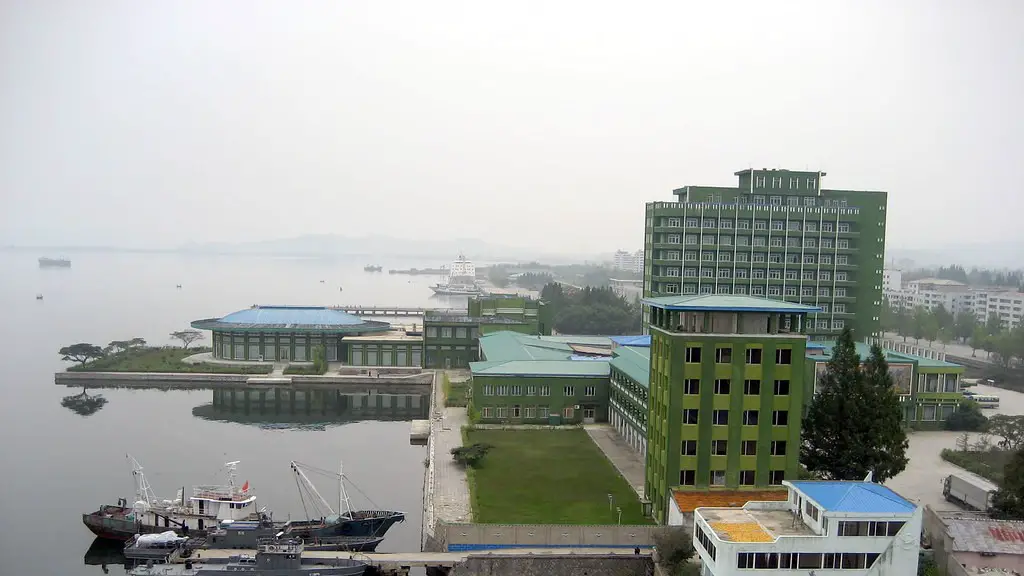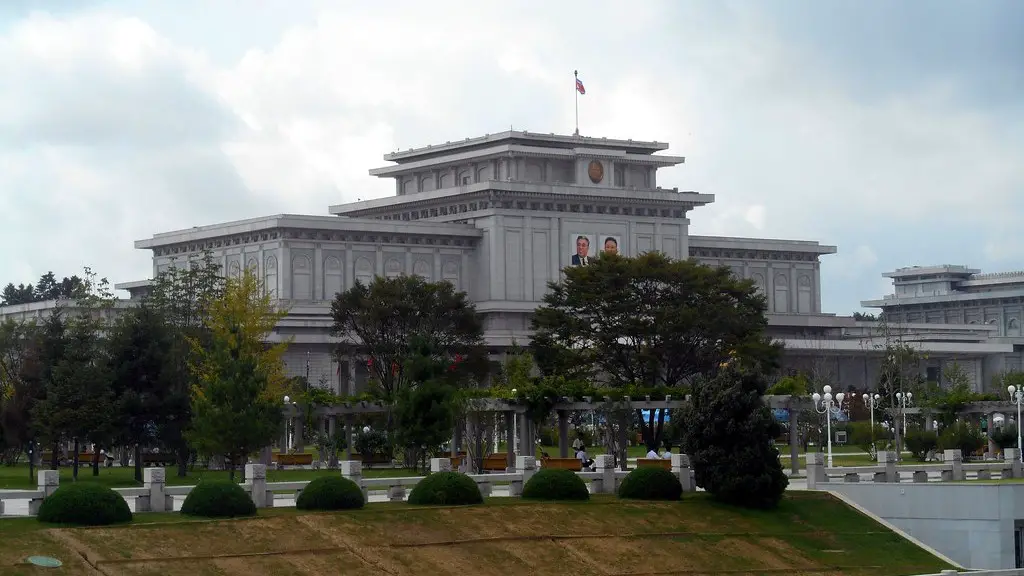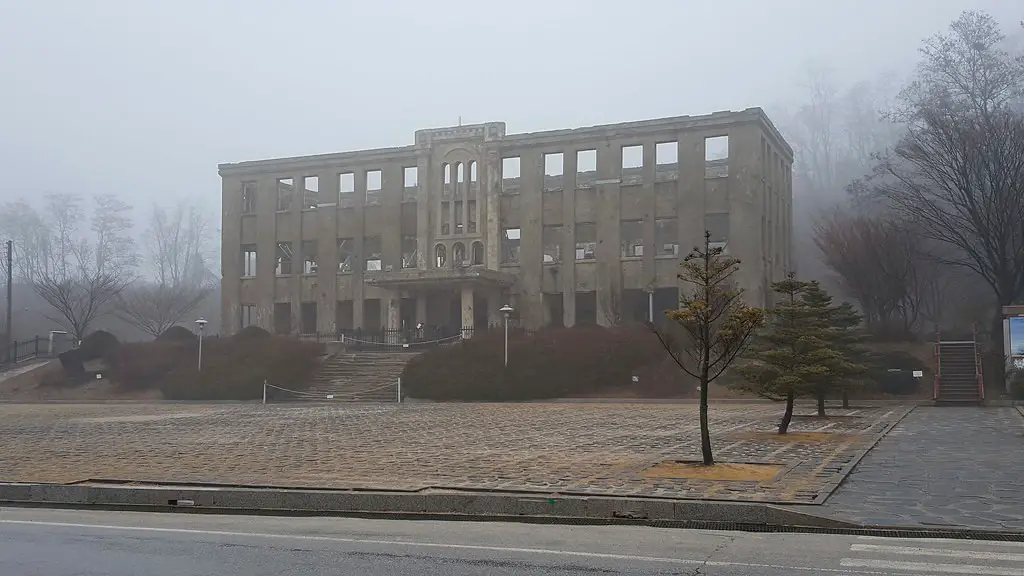Escalation of Military Violence
If the United States were to bomb North Korea, it could be seen as an unforgivable act, potentially leading to a heightened state of military violence between the two nations. Any US aerial or naval bombing campaign would likely be met with a fierce and immediate retaliatory response from North Korea. Its armed forces possess a wide range of retaliatory capabilities, ranging from anti-aircraft missiles and artillery, to cyber attacks and various Special Forces-led operations. Beyond this, North Korea could also call on overseas operatives and sympathisers to perpetrate terrorist attacks, with any sign of Western involvement in a military campaign against the country likely to be a rallying call for such activity.
It is thought likely that such an attack would trigger a full-scale war. The possibility of such a conflict would bring about severe consequences for regional security, potentially merging into an international crisis. For example, South Korea could be very quickly drawn into the conflict, with their allies the United States, China, Japan and Russia, already having a vested interest in the region, forced to choose sides or become embroiled in the hostilities.
Civilian and Environmental Impact
Although a conflict between North Korea and the US is, thankfully, unlikely, if it were to arise, there would undoubtedly be devastating consequences for innocent civilians, both within North Korea and in neighbouring countries. The likelihood of aerial bombardment and missile strikes would bring high casualties, whilst also creating lasting physical and psychological damage, particularly to children and young people.
The conflict could also cause extensive environmental damage. Even without the use of weapons of mass destruction, significant damage could be caused by deforestation and the destruction of North Korea’s nuclear, chemical and biological weapons sites. The country is home to many vulnerable species, and many of its protected wildlife parks, preserves and nature reserves could be affected. In the aftermath of any sort of bombing campaign it is likely that the entire region would be affected, with injuries and fatalities, widespread displacement and displacement of refugees, and environmental damage resulting from the conflict.
International Consequences
The consequences of a US bombing campaign on North Korea could spread beyond East Asia and have far-reaching repercussions around the world. Any such action is likely to significantly destabilise the international order by creating new flashpoints and intensifying existing tensions in the region, particularly between China and the US.
The US could also face an increased threat to its allies in the region, such as Japan and South Korea, as well as further afield. Any conflict in East Asia could have an immediate effect on the global economy and there would likely be an economic impact, particularly in terms of oil prices, as the tension between the US and other Middle Eastern nations rises.
Any US bombing campaign would also likely create a rift between Washington and its allies, many of whom may be unwilling to accept a US-initiated war. As such, the US risks becoming more isolated in the international community, and a decline in its moral authority.
Impact On US Image
The US would also face immense public scrutiny and condemnation if it were to bomb North Korea, with the outrage likely to reach far beyond the region. The US is already known for its military might, but a bombing campaign on a country that is already isolated and vulnerable could be seen as excessive and morally wrong.
The US would thus risk reinforcing its image as an imperial force, seen as indifferent to the suffering of innocent civilians, and in violation of international law. This could potentially lead to a broader rejection of American values and policies, both domestically and abroad.
Implications of Nuclear Retaliation
The possibility of nuclear retaliation must also be taken into account. Although North Korea claims to possess nuclear weapons, there is no evidence that it has the capability to deliver them to the US. Even if North Korea were to launch a nuclear-tipped missile that landed in the US, it is unlikely that it would cause significant damage, given the US’s sophisticated missile defence system.
Nevertheless, the possibility of any form of nuclear retaliation cannot be excluded, and this escalates the stakes considerably. North Korea may choose to launch a retaliatory nuclear strike at one of its regional neighbours, such as South Korea or Japan, which could have devastating consequences for both countries.
Risk Of Escalation
Finally, it must be remembered that any US action against North Korea could easily lead to an escalation of the conflict, with both sides potentially engaging in tit-for-tat retaliatory measures that could spiral out of control.
This could lead to the use of weapons of mass destruction, or even an all-out nuclear war that would have catastrophic consequences for the entire world. Although it is unlikely that the US would initiate such a conflict swiftly, the distinct possibility that it could do so alone highlights the danger of a hostile military action against North Korea.
Impact On Diplomacy And Negotiations
The US bombing of North Korea would also serve to complicate the already highly strained diplomatic relations between the two nations, and significantly weaken the prospect of a negotiated resolution to the Korean crisis, with North Korea likely to cease all previous cooperative efforts.
Any military attack by the US against North Korea could also be seen by some commentators as tacit approval of North Korea’s nuclear programme, potentially increasing Pyongyang’s sense of security and emboldening it to continue in the pursuit of its weapons ambitions. This could thus have wider implications for global nuclear non-proliferation efforts.
Summary
In summary, should the US bomb North Korea, it could lead to a devastating conflict, with profound consequences for the Korean peninsula, the wider region and the world. It would also damage existing diplomatic ties between the two nations and likely further entrench North Korea’s attitude to its nuclear ambitions, making a diplomatic resolution to the current crisis even more unlikely.




